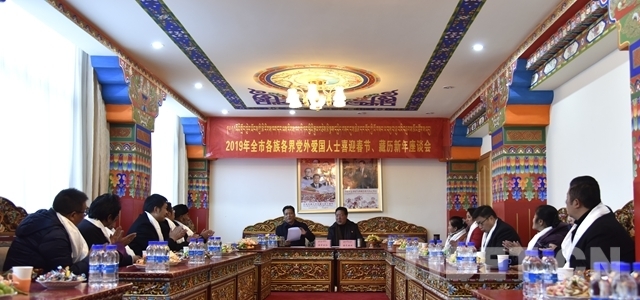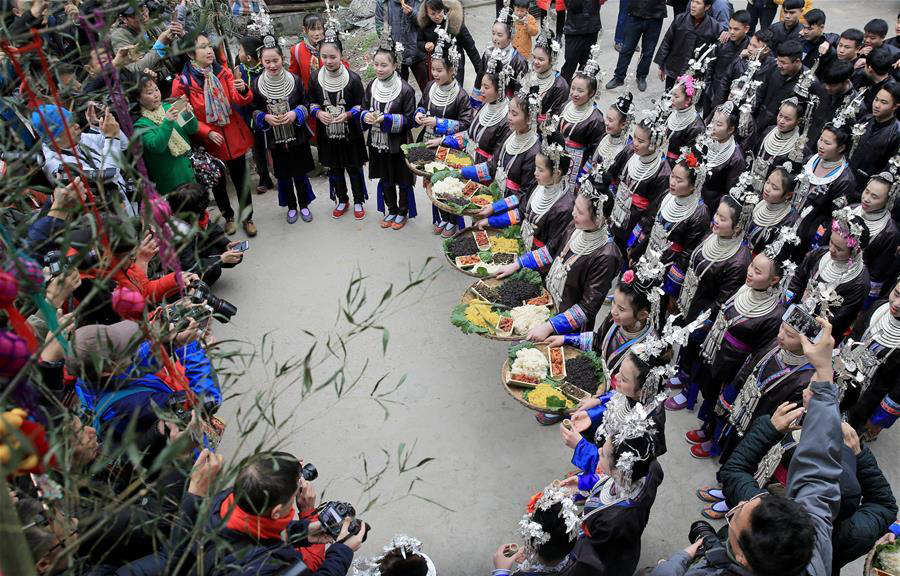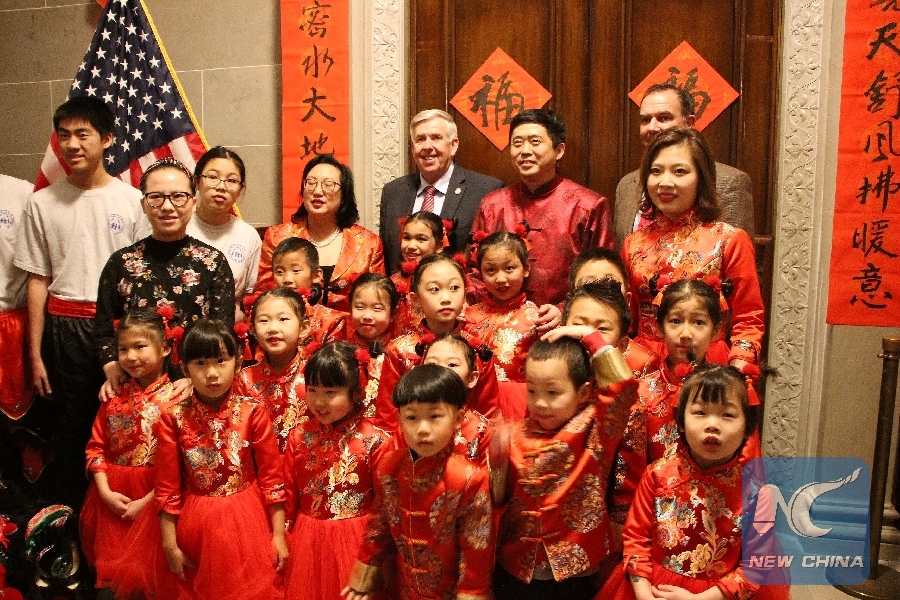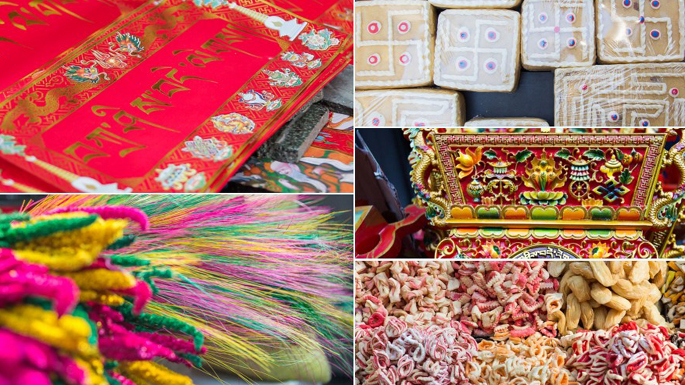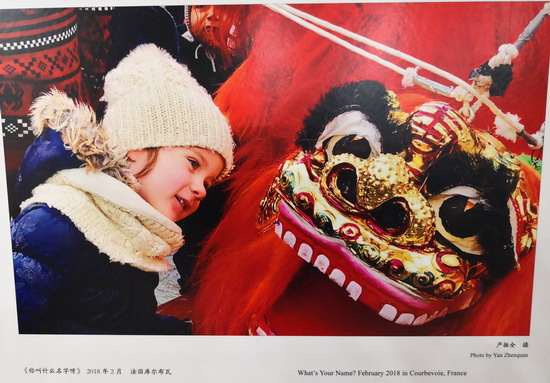Tibetan students join Han families for new year
"Tashi Delek!" Tibetan student Oden was presenting hatas to his Han "family." They are celebrating the New Year together, as Tibetan New Year coincides with Spring Festival this year.
Monday marks the new year eve. Oden and his classmate Gosang Geleg gather with their paired family. They are Tibetan students studying in Jinan Tibetan Junior High School in east China's Shandong Province.
Every year, 150 newly enrolled students in this school are paired with local families with whom they can spend weekends, holidays and celebrate festivals together.
"They are my family in Shandong," Oden said.
In his opinion, the happiest thing about New Year is getting together with the family. His parents also traveled from Tibet to see him. "It feels like I have two families now," he said.
Back in the 1980s, the government started to support children from Tibet to attend junior high schools in the economically better-off central, eastern and southern China.
According to the education department of Tibet Autonomous Region, by the end of 2016, more than 110,000 local students, 70 percent of whom are children of farmers and herdsmen, had entered junior high schools in other regions thanks to the policy.
Wang Hongyan is the host mother for Oden and Gosang Geleg.
"When I first met them, the pure smiles on their faces warmed me up," she said. "They are more than welcome in our family."
Wang's son Li Tianrun is studying in Jinan No. 68 Junior High School. She said when the son brought the message from school that they would paired up with the Tibetan students, she was excited.
"The project has been running for nine years, and parents like Wang Hongyan have always been supportive," said Wang Xuefeng, vice principal of Jinan No.68 Junior High School.
At 2 p.m. on Monday, when Oden and Gosang Geleg, both dressed up in Tibetan traditional costume, arrived at their Han family, the new year celebration began.
"I'm a dumpling lover, and this is the first time for me to know how they are made," Oden said. After kneading the dough, slicing beef and chive, he was wrapping the filling, following the instructions of Wang.
"It is an entirely different experience from celebrating new year back home, but we feel the same happiness," the two Tibetan young men said.
Over 3,500 km away in Lhasa, the regional capital of Tibet, the family of Oden's aunt was also busy preparing for the New Year's Eve dinner. Instead of dumplings, they were making kasai, a traditional Tibetan fried pastry made of flour and butter.
"As a must to greet Tibetan New Year and a symbol of family bond, Kasai is the Tibetan people's unique way to greet the upcoming New Year, but both dumpling and kasai represent people's hope for the future," aunt Rigzin Choskyi said.
"Happy New Year!" Rigzin Choskyi said hello to Wang's family, asked Oden to take care of himself and said the rest of the family miss him lots.
As the night sky was illuminated by bright fireworks, the Han-Tibetan family sit at the table enjoying a big dinner, where New Year's Eve was celebrated with laughter and joyful Tibetan songs.
"We also learned a lot about Tibet today," Wang said. It is a golden opportunity for her son to broaden his horizons by making friends from a different cultural background.
Wang said they want to do as much as they can to take care of the Tibetan boys so their parents worry less about them.
Covering 2.2 hectares, Jinan Tibetan Junior High School now has nearly 500 Tibetan students. Different from other junior high schools, its curriculum includes Tibetan language and photography.
"We want to go to senior high school in Beijing, and go back to Tibet after college," Oden said.
Tibet Stories
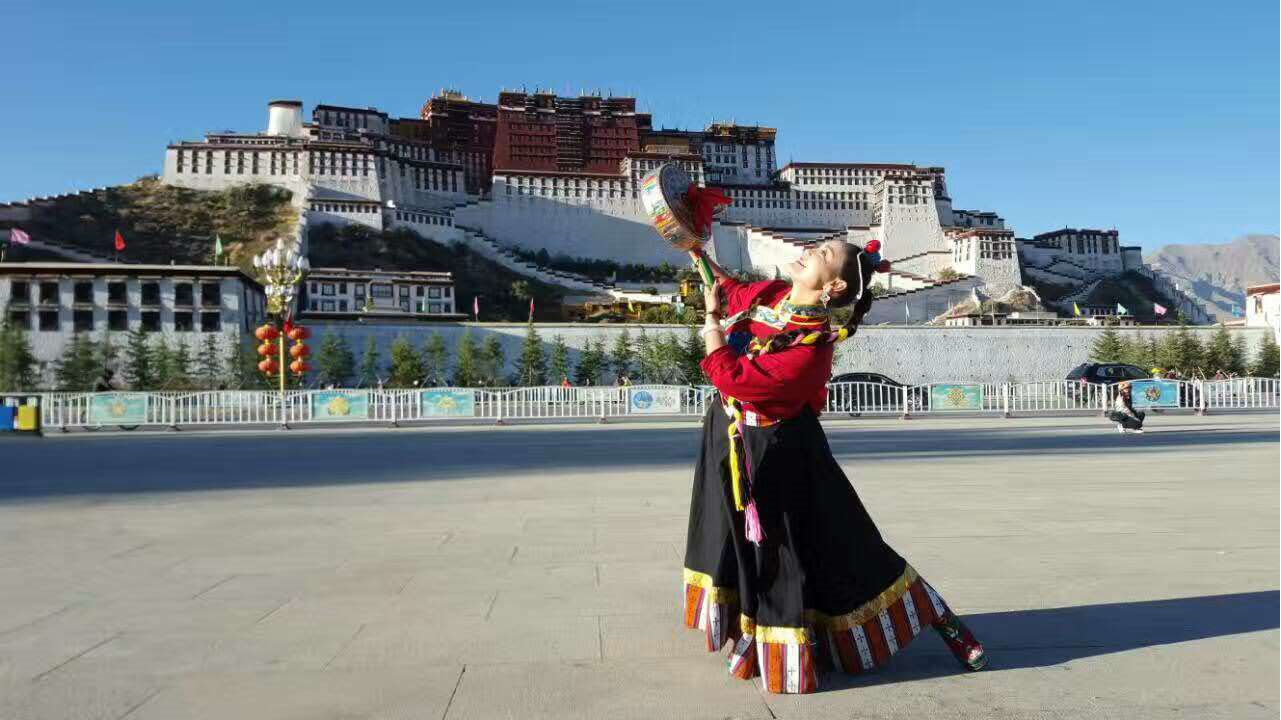
Dzekyid's path of passing down Tibetan dance
Brisk drumbeats, swirling dances, dedicated audience and the swelling passion...
Latest News
- Egypt uncovers intact 4,400-year-old pharaonic tomb near Giza pyramids
- UN climate conference adopts rulebook for implementing Paris deal
- Service of Chinese Americans in World War II to be formally recognized
- Germany suffers severe Santa shortage as Christmas draws near
- 7-year-old in good health, border agents said; then she died
